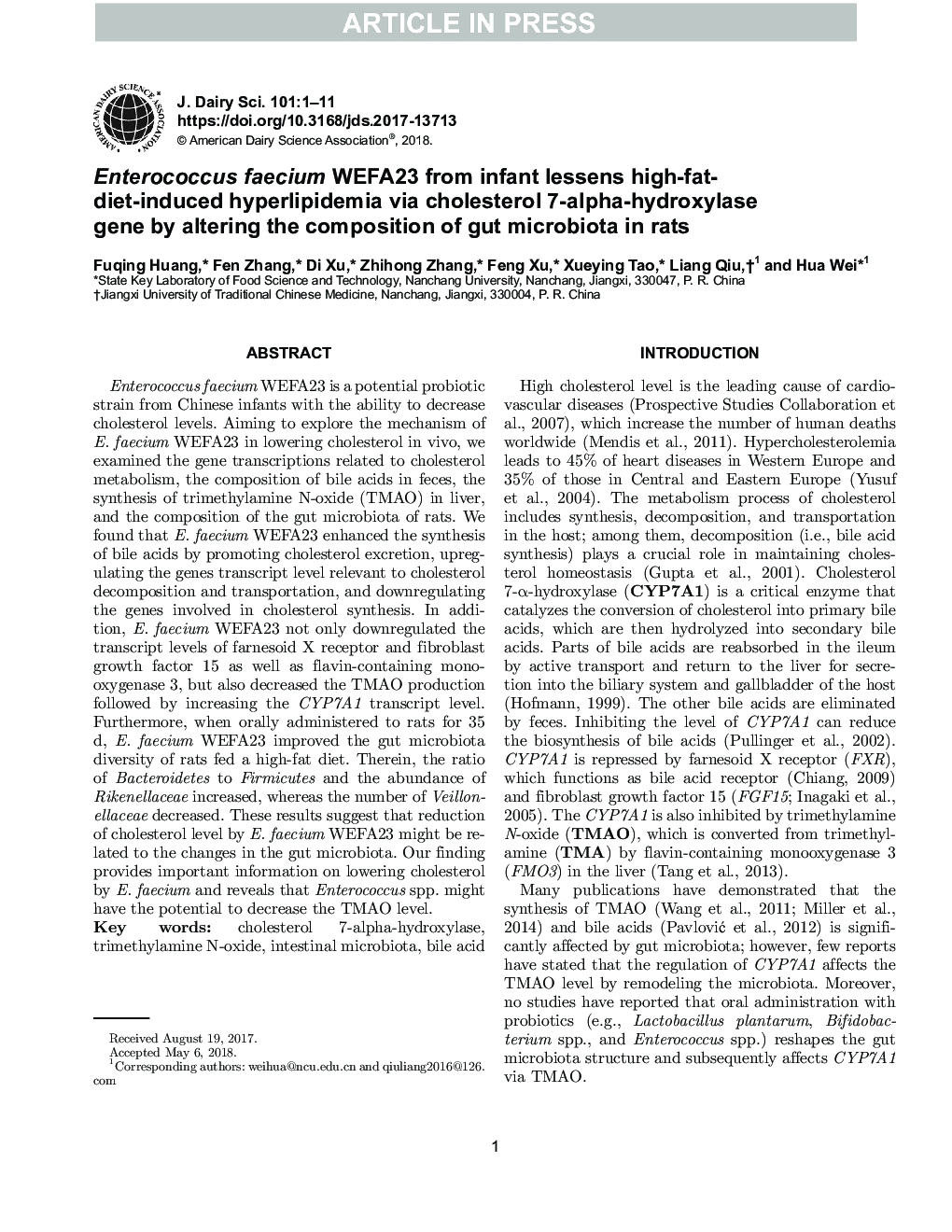| Article ID | Journal | Published Year | Pages | File Type |
|---|---|---|---|---|
| 8956439 | Journal of Dairy Science | 2018 | 11 Pages |
Abstract
Enterococcus faecium WEFA23 is a potential probiotic strain from Chinese infants with the ability to decrease cholesterol levels. Aiming to explore the mechanism of E. faecium WEFA23 in lowering cholesterol in vivo, we examined the gene transcriptions related to cholesterol metabolism, the composition of bile acids in feces, the synthesis of trimethylamine N-oxide (TMAO) in liver, and the composition of the gut microbiota of rats. We found that E. faecium WEFA23 enhanced the synthesis of bile acids by promoting cholesterol excretion, upregulating the genes transcript level relevant to cholesterol decomposition and transportation, and downregulating the genes involved in cholesterol synthesis. In addition, E. faecium WEFA23 not only downregulated the transcript levels of farnesoid X receptor and fibroblast growth factor 15 as well as flavin-containing monooxygenase 3, but also decreased the TMAO production followed by increasing the CYP7A1 transcript level. Furthermore, when orally administered to rats for 35 d, E. faecium WEFA23 improved the gut microbiota diversity of rats fed a high-fat diet. Therein, the ratio of Bacteroidetes to Firmicutes and the abundance of Rikenellaceae increased, whereas the number of Veillonellaceae decreased. These results suggest that reduction of cholesterol level by E. faecium WEFA23 might be related to the changes in the gut microbiota. Our finding provides important information on lowering cholesterol by E. faecium and reveals that Enterococcus spp. might have the potential to decrease the TMAO level.
Related Topics
Life Sciences
Agricultural and Biological Sciences
Animal Science and Zoology
Authors
Fuqing Huang, Fen Zhang, Di Xu, Zhihong Zhang, Feng Xu, Xueying Tao, Liang Qiu, Hua Wei,
